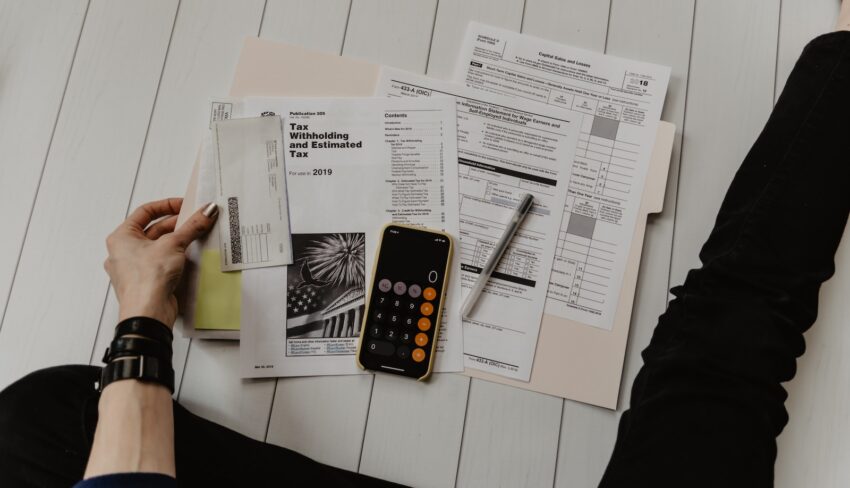7 Tips for Managing Your Money if You Lose Your Job

Losing your job can be stressful, especially in an uncertain time like we are currently in now.
You might be worried about being able to pay your rent/mortgage, pay off your credit card bills, or even just putting food on the table for your family.
If you have recently lost your job, you are not helpless. We’ve put together some of the steps you can take to help relieve some of the stress and hopefully cushion the blow to your income.
Remember to keep a positive attitude, continue to stay focused on getting back on your feet, and everything will fall back into place and you will get through it.
Tough times don’t last forever.
1. Give notice to any creditors you might not be able to pay
When you know that you’re going to have difficulty paying back your credit cards and other debts, notify the company immediately. No one chooses to face financial hardship and creditors commonly have programs that are designed to help their customers during these unexpected life events.
These programs are usually called “financial hardship” and can include situations like a job loss, illness, injury, or natural disaster.
Your creditors will be more willing to work with you and offer such programs especially if you’re letting them know before you start missing payments.
Waiting until after you have already missed your payment might make things a little more difficult. Always be upfront, open, and honest and you will likely receive a better result.
2. Check your savings account and investments
An emergency savings fund that can cover your bills for a few months will be extremely handy in these cases. They are a safety net that gives you time to find a job and not stress out so that you potentially end up accepting a job you aren’t enthusiastic about.
Determine how much you have between your emergency savings fund, regular savings, investment accounts, and other cash assets that you have access to. Then calculate how long the money will last with your existing bills.
If there’s not a lot of cash available, you may seek out a part-time or temporary work while you search for a regular job.
3. Eliminate any unnecessary expenses
During this time, you will need to cut any extra expenses that you have to make your money last longer. These are all those “nice to have” things that we do like going to Starbucks for coffee every day. Other unnecessary expenses include:
- Streaming tv services or cable
- Fast food, restaurants, takeout
- Membership to a gym, golf course, etc.
- Lawn care
- House cleaners
- New clothing or shoes
- Online shopping (Amazon)
Figuring out what things are absolutely necessary vs. things you want should be pretty easy.
Just ask yourself, do I need this to live?
If not, then you probably shouldn’t be spending money on it until you have some disposable income again.
4. Prioritize your bills
Especially if you are worried about your money not lasting, you’ll need to prioritize the bills that you have. Your housing and food expenses should be your top priority.
Even with food, however, we tend to overspend at the grocery store. Set a maximum limit for each grocery trip to manage your food expenses more efficiently during this time.
Try to buy food that will last you longer instead of snacks like chips, cookies, and popcorn. Stick to your essentials which is the food that you normally eat for meals.
Other bills that should be on the top of your list are your utilities and cell phone.
If you have a cell phone plan which you can downgrade for a while to save some extra money each month, it might be worthwhile to do so. These providers usually offer something similar to a financial hardship plan, so be sure to ask.
5. Avoid taking on new debt
Taking on a new loan that’s going to add on to your monthly costs isn’t a good idea at this time.
There are very few purchases that you need while you don’t have a job. Applying for a new credit card should also be avoided, even if there’s a good deal being offered.
The one exception is if you believe you can save money or need to reduce your monthly payments on existing debt. This is done through debt consolidation where you pay a lower interest rate and smaller monthly payment.
A personal loan, home equity line of credit and introductory offer credit cards (typically see these with a 0 percent balance transfer for a certain number of months) could all be products that offer this option.
As a general rule of thumb, all new debt should be avoided if possible.
In most cases, taking on new debt will result in more monthly expenses and interest payments.
6. Make at least minimum debt payments
If you can afford it, try to pay your full balance or more than the minimum payment on your credit cards, personal loans, etc. You’ll end up paying less interest in the long run.
At the very least, you want to ensure that you’re making your payments on time and covering at least the minimum amount to avoid fees and penalties.
7. Look for part-time work or monetize your skills
Looking for a new job is a time-consuming process. There may not be jobs available for your skillset and some companies have long interviewing processes that take a few weeks or months to get through.
You will probably have a lot of free time on your hands too.
Leverage this time and find a part-time job to have a source of income coming in.
Don’t be too picky since it’s only a temporary situation. Many employers are looking to hire quickly for help in grocery stores, warehouses, and delivery help.
There’s also opportunities in the gig economy which has options such as grocery delivery that allows you to work with flexible hours as much or as little as you want.
If you have a certain skill set like graphic design, programming, legal consulting, writing, web design, proofreading, etc. consider monetizing it and take on freelance work. There are many freelance websites out there for professionals with those abilities such as UpWork and Fiverr.
Final word
The strategies to navigate through times of economic uncertainty are the same strategies used to build wealth. Minimize your expenses and try to increase your income.
If you recently lost your job, your income likely went to zero. You should try to minimize your expenses and outstanding debt and find any work you can to get some of that income back.
Everyone goes through the same struggles when facing job loss. Some are better positioned than others financially but don’t lose hope.
Please don’t hesitate to reach out with any questions or concerns and we will do our best to try and help you navigate through your challenges.






